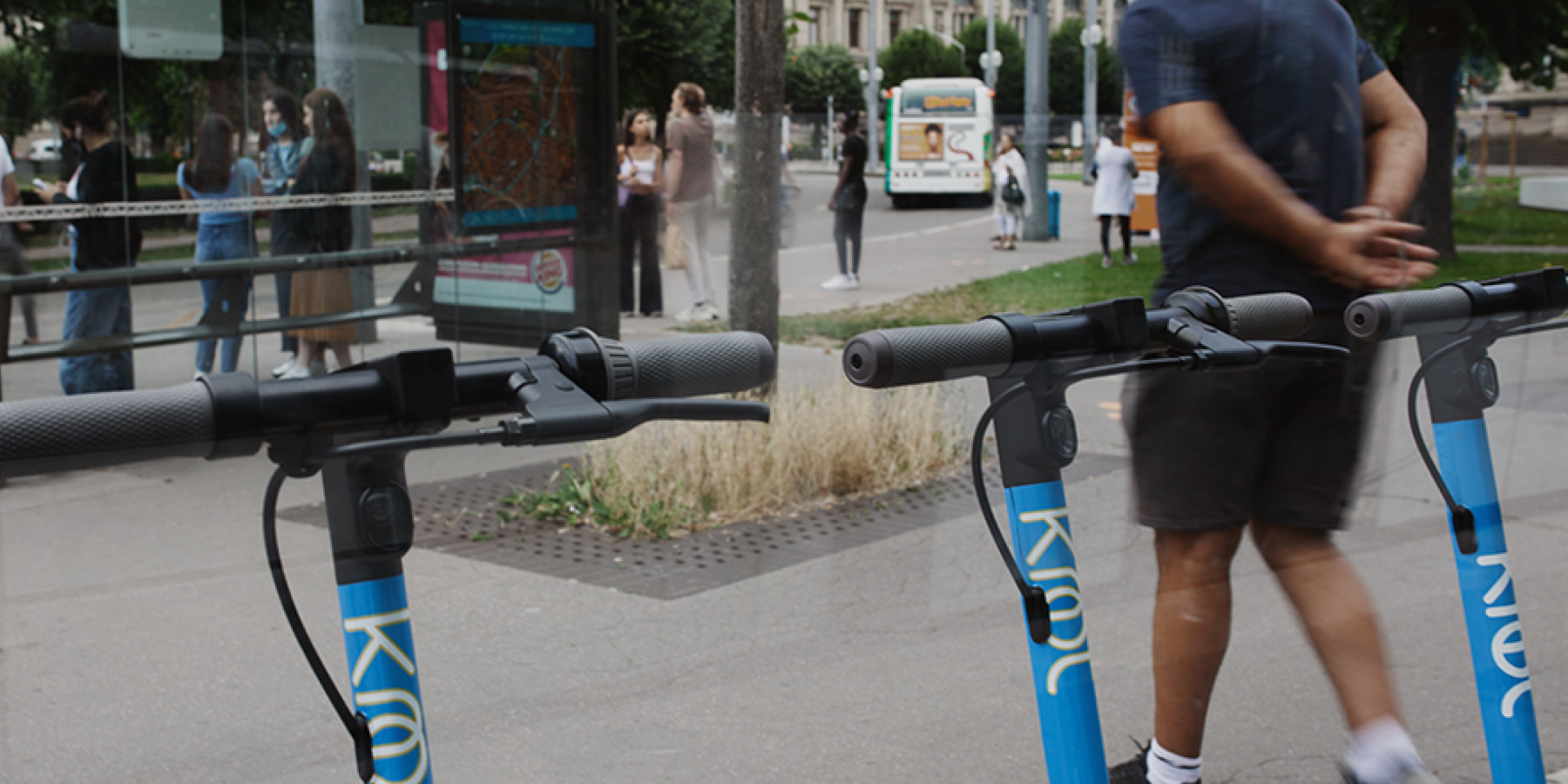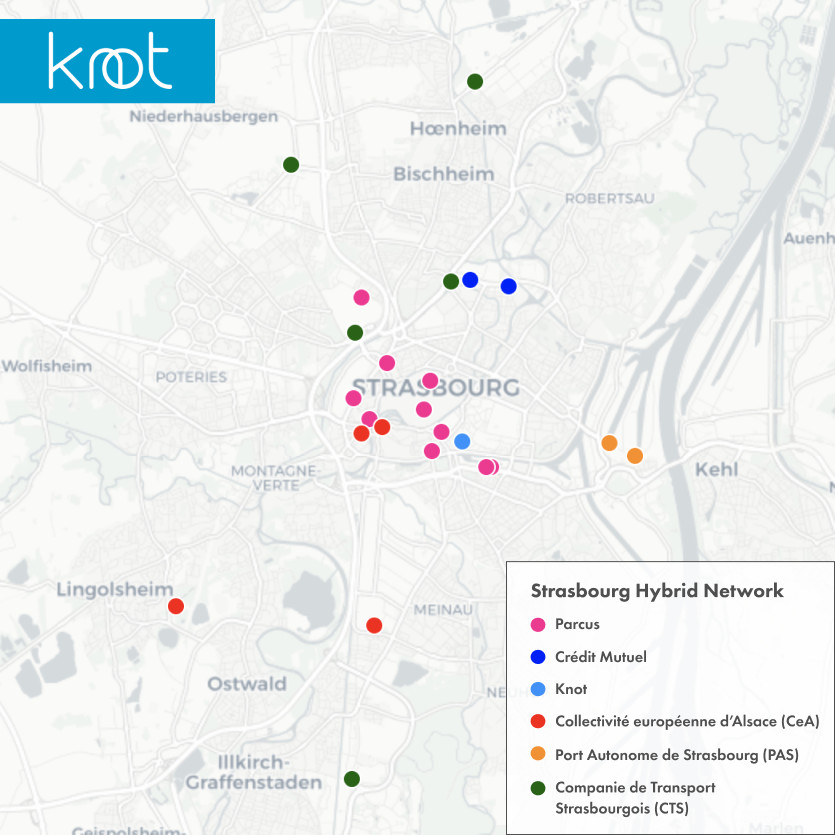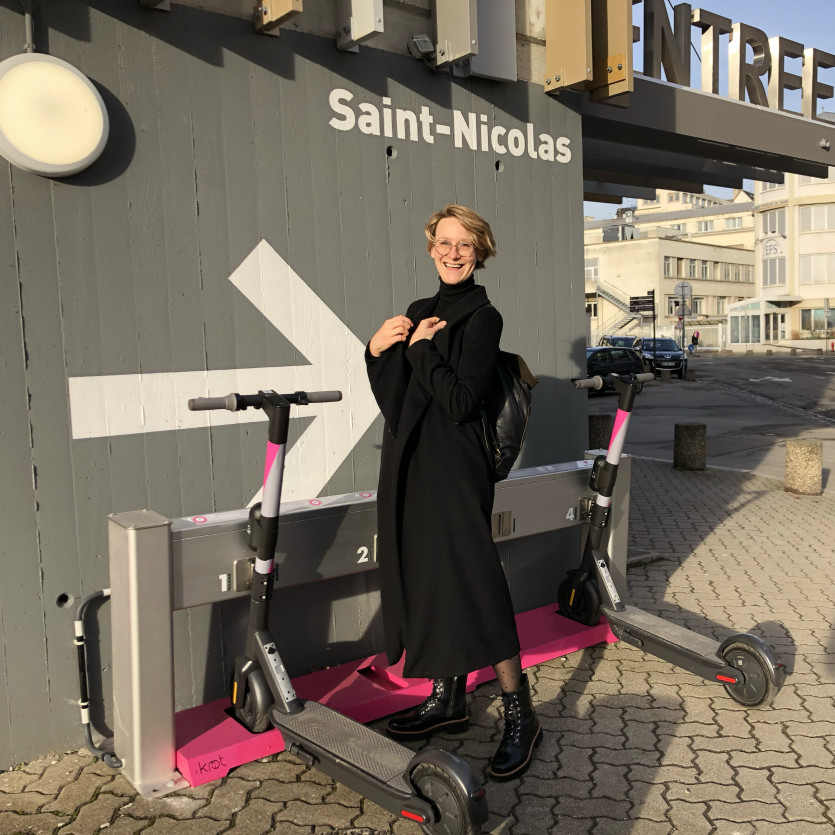Published on January 15, 2024 by Kseniia Penkova

Did you know that Strasbourg, France, has a unique e-scooter network, small yet fully interconnected with public transportation? Established in February 2021 by Knot and its primary partner Parcus, this network brought together local enterprises to invest in sustainable e-mobility. The network is considered hybrid as it combines private and public access to the service.
As of January 2024, the network spans 25 stations citywide, offering over 80 scooters for rent. This network is truly unique, the result of a collective effort and funding by local businesses and organizations. Knot acts as a fleet operator and is responsible for maintaining the fleet and supporting the riders.
The key numbers of the network last year:
- Revenue Growth 2023 +21%
- Rides growth +11%
- Total distance driven 173 224 km
How does the mutual scooter network work?
It is not obvious but simple: companies purchase and install stations on their private, yet accessible to the public, land. This model has already seen participation from businesses like Credit Mutuel, CTS (local public transportation company), CAE (governmental institution), and PAS (city harbor authorities), strategically placing stations to ease commutes for their employees while remaining open for public use.

The docked-based model allows citizens and city guests to pick up a scooter at one station and drop it off at another, aligning with the Strasbourg administration’s requirement for organized scooter usage over free-floating models. The ban on public scooters in Paris proved that they opted for the optimal model. To keep the riders from leaving the vehicle on the streets, Knot applies an additional fee of €25 if a user parks scooters outside designated stations.
Who are the stakeholders of the Strasbourg network?
The main player, Parcus is a car parking service provider in Strasbourg. It was among the first to install the scooter stations of the Strasbourg network. By placing them in their most frequented parking areas, Parcus aims to offer a convenient last-mile connection to the parking clients.
The Independent Port of Strasbourg (PAS), a significant river transport hub along the Rhine, has installed scooter docks Knot in the port area to address the limited public transport options to its location and to attract new tenants to its area.
Another important mobility actor is Crédit Mutuel, a French banking institution. It joined the Knot & Parcus mobility initiative, demonstrating a commitment to sustainable transportation. To facilitate quick and eco-friendly trips for their employees between their offices and city parking, they strategically installed two scooter stations in front of their office buildings to offer a new service to their office workers and clients.
The European Collectivity of Alsace (CeA), as a public partner, has also supported this micro-mobility project. CeA introduced a new mobility service for their employees by placing Knot’s docked scooters outside their office in La Petite France, the heart of the city.
Finally, CTS, the entity responsible for Strasbourg’s public transport, has installed stations in select locations to complete urban transport infrastructure and to help bus drivers quickly travel from their depot to the city center, improving operational efficiency and reducing transit times.

Mobility benefits for everyone
This initiative isn’t just about sustainable mobility; it’s a statement of community and environmental responsibility. Another important value hides in the hybrid nature of the network — public& private, with the possibility to cover entirely or partially the employees of their employer. Crédit Mutuel is a great example, covering 50% of all ride costs and offering customized subscriptions for their office workers.
The network was initially established as the experiment, and due to its success, the experimentation continues to run, the contract has just been extended for another three years. The project depicts that there is an alternative way for a company to become a local actor in green mobility. There are benefits for local companies, public institutions, and people.
The successful hybrid mobility hubs demonstrated in Strasbourg can be effectively replicated in other cities and industries with some adaptation. The key to this replication is the customization to local contexts. Establishing public-private partnerships, similar to those between Knot, Parcus, and local organizations in Strasbourg, is crucial. These collaborations can leverage the strengths of both sectors for mutual benefit.